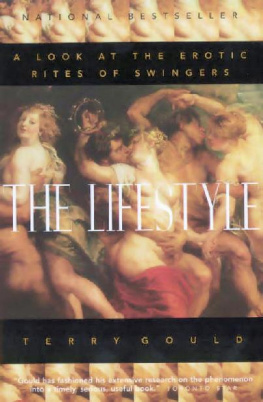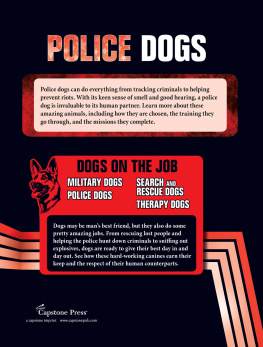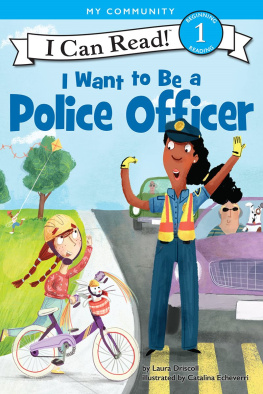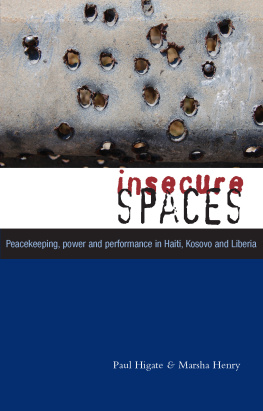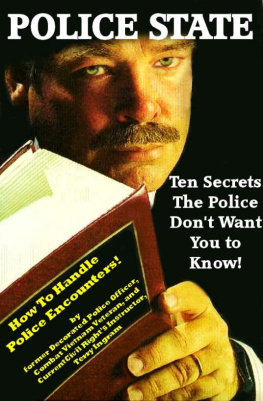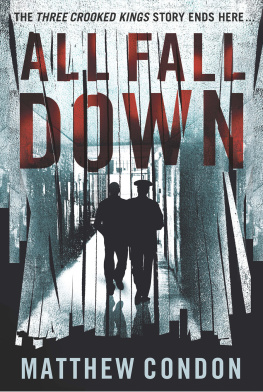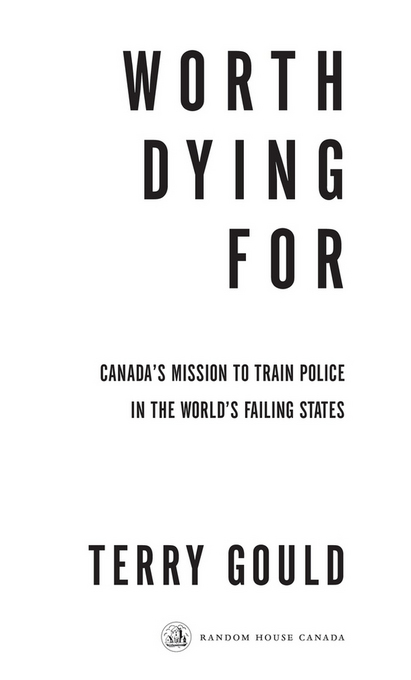ALSO BY TERRY GOULD
How the Blind Make Love (fiction)
The Lifestyle
Paper Fan
Murder Without Borders
PUBLISHED BY RANDOM HOUSE CANADA
Copyright 2014 Terry Gould
All rights reserved under International and Pan-American Copyright Conventions. No part of this book may be reproduced in any form or by any electronic or mechanical means, including information storage and retrieval systems, without permission in writing from the publisher, except by a reviewer, who may quote brief passages in a review. Published in 2014 by Random House Canada, a division of Random House of Canada Limited, a Penguin Random House Company. Distributed in Canada by Random House of Canada Limited, Toronto.
www.penguinrandomhouse.ca
Random House Canada and colophon are registered trademarks.
Library and Archives Canada Cataloguing in Publication
Gould, Terry, 1949, author
Worth dying for : Canadas mission to train police in the worlds failing states / Terry Gould.
Includes bibliographical references.
ISBN 978-0-307-36062-5
eBook ISBN 978-0-307-36064-9
1. Royal Canadian Mounted Police. International Peace Operations Branch.
2. Police training. 3. Failed states. 4. CanadaForeign relations. I. Title.
HV7909.G69 2014 363.22 C2014-901532-1
Cover design by Leah Springate; cover image, courtesy of Joe McAllister
Image credits: unless otherwise noted, all interior photographs Terry Gould

v3.1
To Leslie, my wife of forty-four years
But his life, as he looked at it, had no meaning as a separate life.
It had meaning only as part of the whole, which he constantly sensed.
L EO T OLSTOY , War and Peace
CONTENTS
INTRODUCTION
WE ARE ALL ON A MISSION
Nothing can bring you peace but the triumph of principles.
Ralph Waldo Emerson, Self-Reliance
T HE ABILITY OF HUMANITARIAN IDEALISTS to retain their courage in the face of impossible odds is a quality that fascinates me. Humanitarians never consider themselves as fighting for a lost cause. They believe, as Martin Luther King said, that the arc of the moral universe is long but it bends toward justice. The courage of humanitarian idealists is always expressed in action, and as a journalist I am drawn to actions that demonstrate ideals.
I began this book after a decade of reporting from countries where humanitarian idealists were being beaten and jailed by the thousands. The nations I covered in Latin America, the Pacific Rim, South Asia and the Middle East were run like criminal enterprises. The rulers employed the police to enforce their own lawlessness and routinely got away with embezzling the national treasury. Any public resistance to their organized theft was met with organized violence.
Midway through that saddening decade I began documenting the careers of idealistic journalists murdered in their hometowns. The journalists had believed in the principle that the powerful should be prevented from oppressing the weak and were outraged that the rulers believed in the opposite principle: that the weak offered opportunities for the enrichment of the powerful. Standing up for their neighbours, defying an ethic of impunity that guaranteed retribution, the journalists exposed the corruption of their governments and, in almost all the cases I studied, their murders were arranged by the police who served those governments.
As I moved from country to country it became apparent to me that corruption, an ad hoc arrangement in some places, was a formal structure in the most murderous nations, and that the police were crucial to the reign of predatory rulers. Presidents and prime ministers behaved like gang bosses, appointing their closest cronies to top police posts with the understanding that while their salaries would be low, their incomes would be high. In return for support and the sharing of spoils, police chiefs were granted impunity. The chiefs then sold subordinate commands to cronies with the same understanding, until a pyramid of corruption was locked in from the top down. The police channelled the benefits of the economy to the rulers, extorted kickbacks and bribes from the civilian population, enabled fraudulent elections and used torture and murder to crush any possibility of reform.
The police chiefs I interviewed in these countries showed no sign of conscience as they justified a system that left most citizens poor, desperate and futureless. Not every cop I met was corrupt, of course, but I found the clean ones concentrated in the junior ranks. They were only recently separated from their communities by their uniforms and had not yet developed the carapace of cynicism necessary to commit crimes without guilt. Indeed, they quietly voiced the same disgust with their national systems of corruption as the civilians whom their older colleagues regularly hit up for bribes. I became convinced that police recruits of any culture do not like thinking of themselves as criminals. The religions they are raised on preach an opposite code of behaviour. The problem, I realized, was that in societies where impunity reigns, honest cops eventually join the lawbreakers. They absorb the worldview promoted by their chiefs: They pay us nothing, they expect us to steal, so well steal. It is a system of management that ensures almost all cops are guilty of a crime from early in their career onward. Those who dare to investigate official corruption are weeded out as deviants or murdered as rats.
By the end of that decade of overseas reporting I concluded that reforming the police was a key element to reforming systemically corrupt societies. But how, I wondered, do you reform entire police forces so that they stand as a check against the predators who are their political masters?
After I published my book on assassinated journalists, Murder Without Borders, I was invited to address a conference of RCMP officers at a police-training centre outside Vancouver. I spoke about my experiences in nations run according to the principle of organized crime and the murderous behaviour of their police. At the conference was a veteran officer who believed there was a practical way to reform police forces that oppressed civilian populations. His name was Joe McAllister, at the time a forty-nine-year-old superintendent who had served three years in failing states with a little-known federal unit called the International Peace Operations Branch. In far-flung regions around the world, the unit was attempting to give ruined countries a chance at renewal by transforming their police.
Id never heard of the unit. Id known that our officers were training local police in Haiti but not that their postings were worldwide and that every year hundreds of city, provincial and Mounted Police were recruited to train cops in the worlds most tormented countries. The unit, run by the RCMP, had a strategic mission: Build honest, professional, civilian police services in countries devastated by war or teetering on the brink of collapse. Its officersknown by the acronym CivPol, for civilian police trainerswere at that moment risking their lives in nine red zone missions, including in six of the top ten countries on


